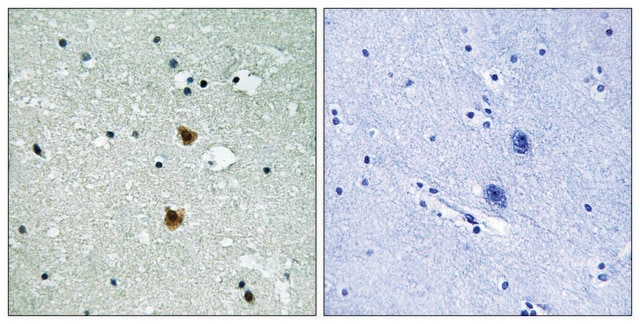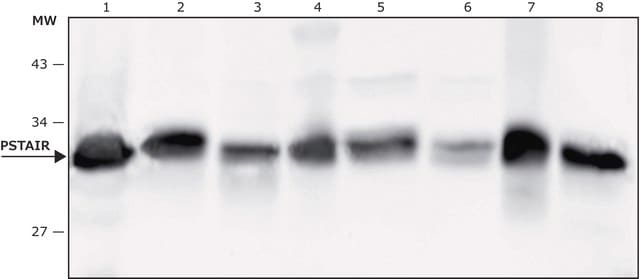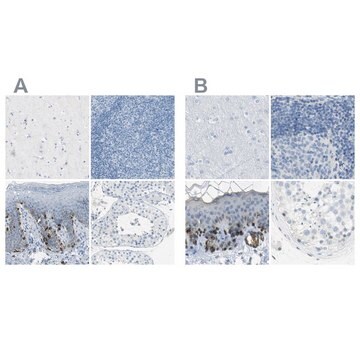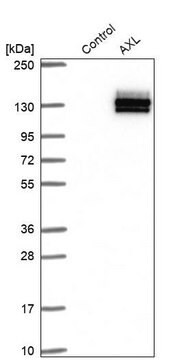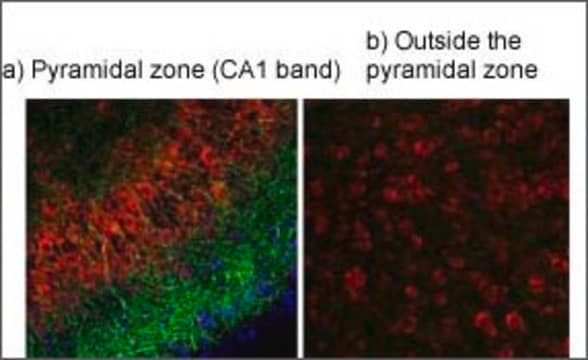SAB4200753
Anti-phospho-AKT (pThr450) antibody, Mouse monoclonal
clone AK-11, purified from hybridoma cell culture
Synonym(s):
Anti-Protein Kinase B, Anti-V-Akt Murine Thymoma Viral Oncogene Homolog 1
About This Item
Recommended Products
biological source
mouse
Quality Level
antibody form
purified from hybridoma cell culture
antibody product type
primary antibodies
clone
AK-11, monoclonal
form
buffered aqueous solution
mol wt
~56 kDa
species reactivity
mouse, chicken, rat, human
concentration
~1.0 mg/mL
technique(s)
immunoblotting: 1-2 μg/mL using human breast cancer cell line MCF-7 extract
immunofluorescence: 1-2 μg/mL using mouse embryo fibroblast NIH-3T3 cells
immunoprecipitation (IP): 2-4 μg/test using whole extract of mouse embryo fibroblast NIH-3T3 cell line
isotype
IgG2a
UniProt accession no.
shipped in
dry ice
storage temp.
−20°C
target post-translational modification
phosphorylation (pThr450)
Gene Information
human ... AKT1(207)
General description
Specificity
Immunogen
Application
- immunoblotting
- immunofluorescence
- immunoprecipitation
Biochem/physiol Actions
Physical form
Storage and Stability
Disclaimer
Not finding the right product?
Try our Product Selector Tool.
Storage Class
10 - Combustible liquids
wgk_germany
WGK 2
flash_point_f
Not applicable
flash_point_c
Not applicable
Certificates of Analysis (COA)
Search for Certificates of Analysis (COA) by entering the products Lot/Batch Number. Lot and Batch Numbers can be found on a product’s label following the words ‘Lot’ or ‘Batch’.
Already Own This Product?
Find documentation for the products that you have recently purchased in the Document Library.
Our team of scientists has experience in all areas of research including Life Science, Material Science, Chemical Synthesis, Chromatography, Analytical and many others.
Contact Technical Service

